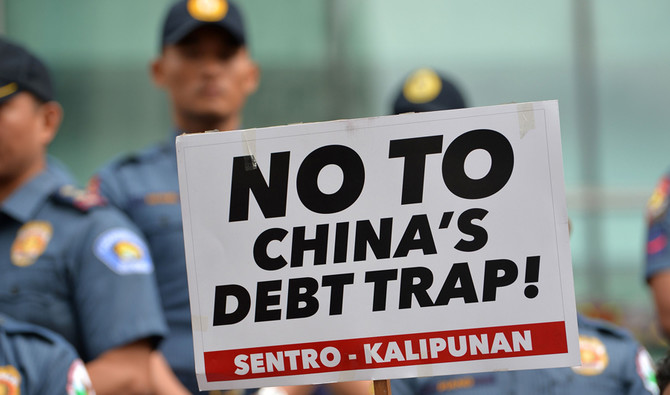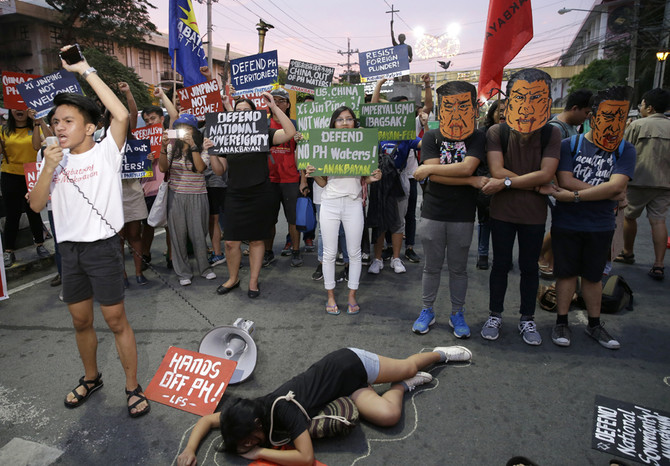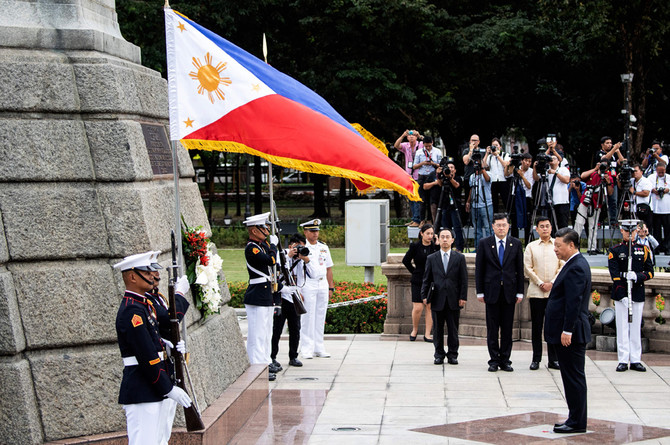MANILA: Chinese President Xi Jinping ended his historic visit to the Philippines on Wednesday, with the two countries committing to push for a peaceful and strategic cooperation.
This was despite an existing territorial dispute over the South China Sea. Upon the invitation of President Rodrigo Duterte, Xi arrived in Manila Tuesday for a two-day state visit. It marks the first state visit to the Philippines of a Chinese president in 13 years.
The two leaders held a bilateral meeting, charting the course for the future of Philippines-China bilateral relations, had an in-depth exchange of views on regional and international issues of common interest, and reached an important consensus.
During the joint press conference at Malacañan Palace Tuesday evening, Duterte said Xi’s visit was an opportune time for both countries to celebrate the growing strength of their friendship and cooperation.
He noted that in the past two years, both nations have worked hard to lay the cornerstones for the continued advancement of beneficial cooperation in a wide range of areas.
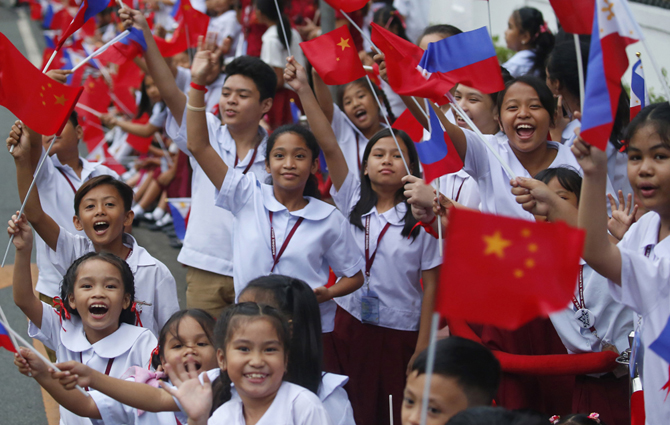
Filipino schoolchildren wave Philippine and Chinese flags as they line up the route for visiting Chinese President Xi Jinping in Manila on Nov. 20, 2018. (AP)
“A lot of work remains, but President Xi’s visit gives a new impetus to our mutual efforts to enhance collaboration in ensuring the wellbeing of our peoples and contributing to peace and stability in the region,” Duterte said, adding that he was “pleased with the current positive momentum of the Philippines-China relations.
“There is a deepening trust and confidence (between) our governments, and we have greatly increased dialogue and interaction on many levels,” he said.
The Philippines president said that he had discussed with the Chinese leader how to further enhance functional cooperation in key work areas, such as bilateral trade and two-way investments promotion. Also tackled was infrastructure development, particularly China’s participation in projects under the Duterte administration’s “Build Build Build” program, which aims to bring about a golden age of Infrastructure in our country.
The two leaders likewise discussed cooperation on the reconstruction and rehabilitation of Marawi, which was the site of a bloody siege by the Daesh-inspired Maute Group, and the Philippines’ participation in China’s Belt and Road Initiative.
And amid unsettled territorial disputes, Duterte said the leaders also discussed mutual concerns on maritime cooperation, as well as defense, security, law enforcement, transnational crime, and strengthening their partnership in combating the trafficking of illegal drugs.
“With mutual respect, sincerity, and adherence to sovereign equality, I will continue to work closely with President Xi to deepen the relationship between our great countries so we may together secure a peaceful and prosperous future for both our peoples and for the entire region,” he said.
Xi, for his part, extended his sincere greetings and best wishes to all the people of the Philippines, saying that he had been looking forward to this visit.
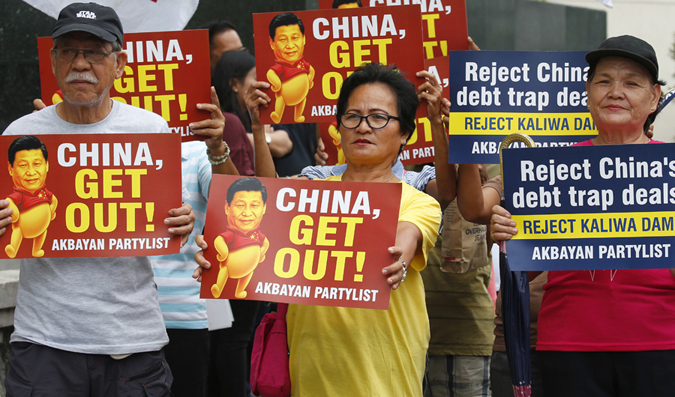
Protesters display placards during a rally outside the Chinese Consulate in Manila to protest the two-day state visit of President Xi Jinping onNov. 21, 2018. (AP)
“Just now, the President and I had a friendly, in-depth and productive meeting. We charted the future course of China-Philippines relations and drew an ambitious blueprint for its development,” he said.
And according to the Chinese president, both sides have agreed to elevate their relationship into one of comprehensive, strategic cooperation.
“This vision charts a clear course for China-Philippines relations and it sends a strong message to the world that our two countries are partners in seeking common development.
“However the international situation may change, both sides will remain committed to this relationship and work hard to make it even stronger,” he continued.
The Chinese president went on to commend Duterte for his leadership that parallels the development needs of the Filipino people. Thus, he said, the Chinese Government would continue to support the current administration’s initiatives.
“China respects and supports your endeavors, and we would like to see the Philippines playing an even bigger role in regional and international affairs,” he said.
Meanwhile, on the South China Sea issue, both sides reaffirmed that contentious issues are not the sum total of China-Philippines bilateral relations and should not exclude mutually beneficial cooperation in other fields. This, as they also reaffirmed the importance of maintaining and promoting regional peace and stability, freedom of navigation in and above the South China Sea.
A statement released by the Department of Foreign Affairs added that both sides remained committed to addressing disputes by peaceful means, without resorting to the threat or use of force, through friendly consultations and negotiations by sovereign states directly concerned, in accordance with universally recognized principles of international law, including the Charter of the United Nations and the 1982 UN Convention on the Laws of the Sea.
Further, the DFA said both leaders noted that the situation in the South China Sea has become generally more stable as a result of joint cooperative efforts between China, the Philippines, and other ASEAN member states.
The DFA said both sides agreed to maintain the positive momentum of the negotiations on the Single Draft Code of Conduct (COC) negotiating text, with a view toward the early adoption of an effective COC, based on consensus, and also agreed to exercise self-restraint in the conduct of activities in the South China Sea that would complicate or escalate disputes and affect peace and stability.
Both sides also noted the importance of confidence-building measures to increase mutual trust. In this regard, both sides affirmed the importance of the Bilateral Consultation Mechanism on the South China Sea and the Maritime Cooperation Joint Committee between the two Coast Guards.
“We will continue to manage contentious issues and promote maritime cooperation through friendly consultation, and we will work alongside other ASEAN countries toward the conclusion of the COC consultations based on consensus within three years and contribute our share to peace, stability, and the welfare in this region,” said Xi.
After their meeting, the two leaders witnessed the exchange ceremony of 29 signed bilateral documents, which cover the Philippines-China cooperation in trade and investment, banking and finance, infrastructure, agriculture, education, culture, and people-to-people exchanges, among other fields.
The documents signed included a memorandum of understanding on the cooperation on oil and gas development.



